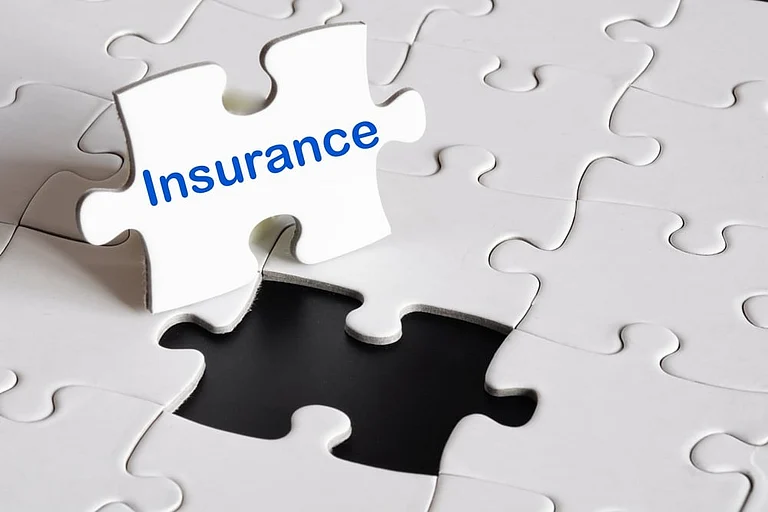Conversations about prevention, early detection, and treatment take centre stage on the occasion of World Cancer Day, which is observed every year on February 4. However, one critical aspect often never finds a seat in this discussion - the question of whether it is worth buying cancer insurance.
Treatment costs for cancer can run into lakhs, and many families find themselves drained both financially and mentally while coping with the emotional turmoil of a diagnosis. From whether it’s even worth buying a cancer insurance plan to what one should look for when purchasing one - let’s decode some key questions that will help you find a way.
But before that let’s take a look at some cancer statistics in India;
According to the Indian Council for Medical Research (ICMR) report, in 2020, it was estimated that there were around 1.39 million cancer cases in India. According to ICMR’s website, cancers of the oral cavity and lungs in males and cervix and breast in females account for over 50 per cent of all cancer deaths in India.
The top five cancers in men and women account for 47.2 per cent of all cancers. Importantly, these cancers can be prevented, screened, and/or detected early and treated at an early stage.
The Rising Cost of Cancer Treatments
The treatment expenses, depending on the type and stage of cancer, can range from Rs 1 lakh to over Rs 25 lakh. Advanced or experiential treatments like immunotherapy or targeted therapy can push costs even higher.
Typically, costs per session of cancer therapies (such as radiation therapy) can range from Rs 50,000 to Rs 2.25 lakh, with total average costs that may range between Rs 2.5 lakh and Rs 22 lakh, depending on the technique used and other factors.
For those without comprehensive health insurance, out-of-pocket expenses can be catastrophic. Even those with standard health insurance may find that regular policies come with limits, co-payments, and exclusions that may not fully cover prolonged treatment.
Who Should Consider Cancer Insurance?
Speaking exclusively to Outlook Money, Siddharth Singhal, Head of Health Insurance at Policybazaar.com, an online insurance market, says “Individuals with a family history of cancer should definitely consider buying it.”
However, he informs, that all standard health insurance policies cover cancer-related treatment after the waiting period, typically 30 days. For cancer survivors, there are specialised plans (offered by many insurers).
Cancer Insurance: Key Things To Know
If you are someone looking to buy a cancer insurance policy, you may wonder; How does it differ from a critical illness plan?
Says Singhal, “A cancer-specific insurance policy covers all stages of cancer and provides coverage to cancer survivors. It works similarly to a regular comprehensive plan by providing continuous financial support throughout diagnosis and treatment, covering chemotherapy, radiation, surgery, and even post-treatment care.”
On the other hand, a critical illness insurance policy covers multiple serious diseases, including cancer, but only offers a one-time lump sum payout upon diagnosis.
Next, you may wonder how much a typical cancer insurance policy would cost. Would it differ depending on your age?
The answer may not surprise you. The cost of cancer insurance does vary by age as do any other health insurance policy. Younger individuals would pay a lower premium and older individuals would have to fish out more bucks as they may face higher costs due to increased cancer risk.
“For a 40-year-old in Delhi, the premium for a comprehensive health insurance plan (Rs 25 lakh coverage) ranges from Rs 14,954 to Rs 21,411, while cancer-specific plans can cost between Rs 21,299 and Rs 31,081,” Singhal informs.
All policies come with some or the other exclusions. The key is to be aware of such exclusions at the time of buying. Now you may wonder, what major exclusions would be in cancer insurance policies.
Says Singhal cancer policies may have a waiting period of 30 to 90 days, during which no claims can be made.
If you are someone looking to buy a cancer insurance policy, you may wonder; How does it differ from a critical illness plan?
Says Singhal, “A cancer-specific insurance policy covers all stages of cancer and provides coverage to cancer survivors. It works similarly to a regular comprehensive plan by providing continuous financial support throughout diagnosis and treatment, covering chemotherapy, radiation, surgery, and even post-treatment care.”
On the other hand, a critical illness insurance policy covers multiple serious diseases, including cancer, but only offers a one-time lump sum payout upon diagnosis.
Next, you may wonder how much a typical cancer insurance policy would cost. Would it differ depending on your age?
The answer may not surprise you. The cost of cancer insurance does vary by age as do any other health insurance policy. Younger individuals would pay a lower premium and older individuals would have to fish out more bucks as they may face higher costs due to increased cancer risk.
“For a 40-year-old in Delhi, the premium for a comprehensive health insurance plan (Rs 25 lakh coverage) ranges from Rs 14,954 to Rs 21,411, while cancer-specific plans can cost between Rs 21,299 and Rs 31,081,” Singhal informs.
All policies come with some or the other exclusions. The key is to be aware of such exclusions at the time of buying. Now you may wonder, what major exclusions would be in cancer insurance policies.
Says Singhal cancer policies may have a waiting period of 30 to 90 days, during which no claims can be made.
“It is crucial for policy buyers to thoroughly review the exclusions and terms of the policy before purchasing. Understanding these limitations ensures that policyholders can make an informed decision and select a plan that provides the best financial protection against cancer,” he states.
This is important because certain pre-existing conditions/diseases (PEDs) may not be covered under cancer insurance, especially if they are related to cancer or cancer-related conditions. Therefore before buying any such plan, it is essential for buyers to review the policy terms and exclusions to understand which PEDs are covered and which are excluded from coverage.
Moreover, some cancer policies may come with a ‘survival period’ requirement, specifying a minimum pre-stipulated duration that the policyholders must survive after the cancer diagnosis to be eligible for benefits or coverage. However, this requirement varies from insurer to insurer and is subject to policy terms and conditions.
The choice to buy cancer-specific insurance, a comprehensive critical illness plan, or a higher health insurance sum insured differs for each individual. It’s best to carefully assess personal risk factors (such as any history of cancer in your family), expanding personal coverage, and your financial situation before choosing any health or cancer-specific plan.

















